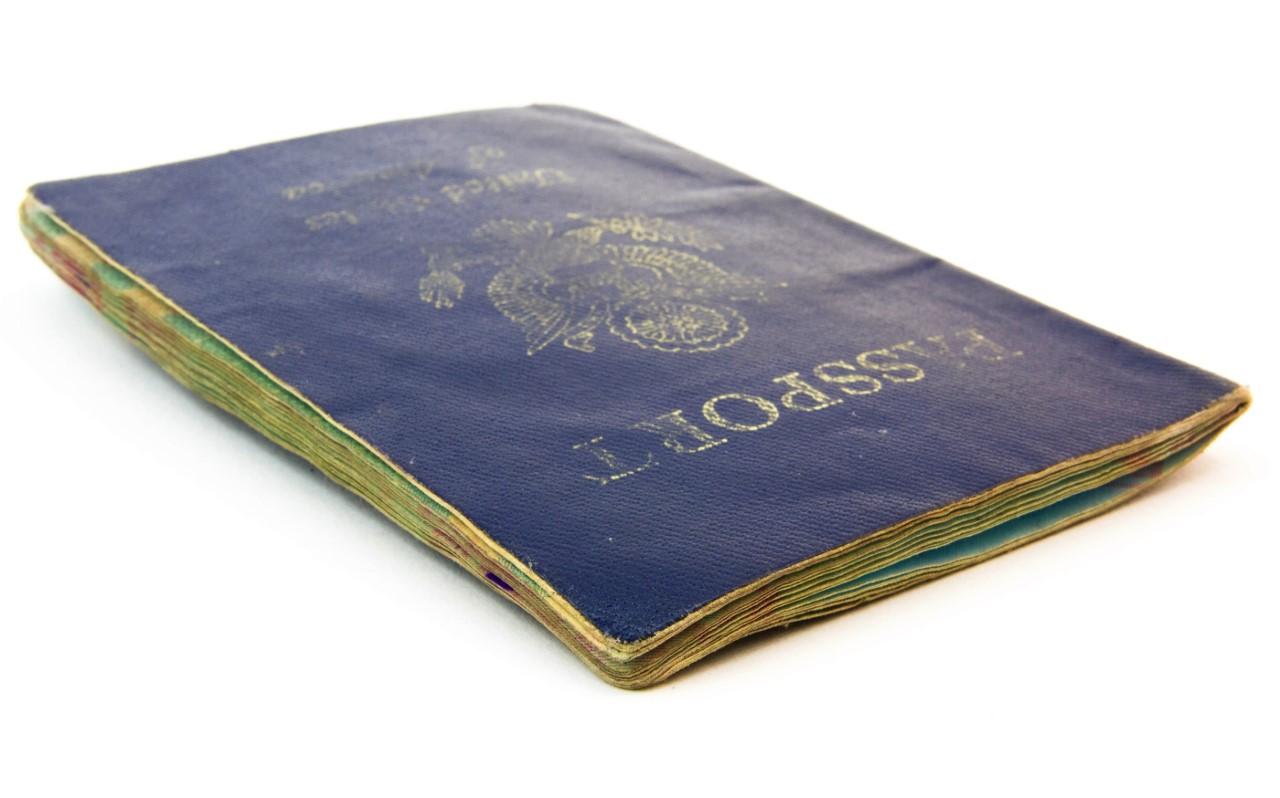Damaged passport: What
to do if it happens to you.
Uh oh. You dropped it in a puddle, and now you have a water-damaged passport. Or maybe your dog decided it wanted a new chew toy, and now you have a mutilated passport. Can you still use your passport as it is? Or do you have to replace it? And how do you do that? Here’s everything you need to know about a damaged passport.
What is considered a damaged passport?
Passports can last a long time—up to ten years between renewals. During that time, passports can suffer some wear and tear, or even some fading. Your passport doesn’t have to look brand new for you to use it, but the standards for a functional passport are pretty high. Any of these traits will make your passport officially damaged and likely unacceptable to border authorities:
- A loose or missing passport cover
- Hanging threads at the edges
- Frayed or loose binding
- Stickers (other than official border or visa stickers)
- Torn, cut or trimmed pages or covers
- Warped, bent, or curved covers or pages
- Peeling plastic
- Unauthorized markings: some tourist attractions will have their own 'passport stamp', but since these are not official government agencies, they could invalidate your passport
- Major or minor water-damaged passports
- Worn or curling edges of pages
- Tears to the cover or pages
- Radio frequency identification (RFID) chip damage
As a rule of thumb, if you’re unsure whether the passport is too damaged or not, it’s better to assume it’s too damaged and replace it. The last thing you want is to have a vacation ruined because border authorities declared your passport invalid due to damages. The authorities could even detain you or send you home. So it’s much better to play it safe.
How to replace a damaged passport?
Replacing a passport is different than just renewing it. Most of the time, you can’t just send it in. You’ll need to go to an acceptance facility, embassy, or passport agency in person and bring the proper materials so the government can issue you a brand-new passport.
If you can, schedule an appointment with the facility first so you don’t have to wait in line. Make sure you bring these items with you, or you may not get your new passport:
- The damaged U.S. passport
- A signed statement explaining the damage
- Form DS-11 (The official application for a U.S. passport)
- Citizenship evidence (such as a birth or naturalization certificate)
- A photocopy of citizenship evidence
- Your most current ID (in person)
- A photocopy of your ID
- Passport photos (make sure they meet the necessary requirements)
- The necessary fees
- A form from CIBTvisas to help speed up the process
If you have any upcoming international travels planned soon, we recommend that you start the application process as soon as possible.
How do you keep a passport from being damaged?
Once you have your new passport, do your best to keep it safe. Keep it out of arms reach from pets and small children. If you can, invest in a case that will protect it from spills and the elements, especially while traveling. Waterproof cases are best. For a cheaper option, you can always try a Ziploc bag. If you’re traveling somewhere with inclement weather, where there may be snow or rain, make clear, colored copies of the passport as a backup in case anything should happen. Every couple of months, make sure you inspect your passport so you know well ahead of time if it needs replacing.
Need help replacing your damaged passport?
Getting a new passport after you damaged the last one can be a stressful process. It’s different and more complicated than other passport applications. And not having your passport in good shape on time could delay your travel plans. But CIBTvisas can help. For over 50 years, we’ve been helping travelers navigate the passport and visa acquisition process to get to where they need to go. Contact us today to talk to one of our experienced specialists who can start the process of replacing your damaged passport.
Stay Up To Date
Stay up to date on the latest travel news from the experts at CIBTvisas.
